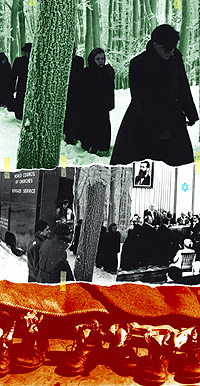A church
The scope of this soon went beyond Europe. With the founding of the State of Israel in 1948, war broke out in the Middle East. That created a new refugee crisis, the first of many to which the churches would be called to respond in succeeding decades.
Fifty years later, the global refugee situation has not eased. A 1995 statement by the WCC Central Committee called on the churches to address the increasing reluctance in all countries to assist refugees and to deal with the root causes of their homelessness:
of
the stranger
The war's end left some 12 million persons homeless throughout Europe. Coordinating international efforts by the churches to meet the needs of uprooted people was thus a major concern of the Council from the beginning.
We are a church of the stranger -- the Church of Jesus Christ the Stranger. Churches are challenged as never before to make a choice: will they choose to be the church of the stranger and take the side of the uprooted or will they choose to turn away or ignore the problem.

Moving clockwise from top, the images are 1: Hungarian/Austrian border, 1956: Hungarian refugees arriving in Austria (Photos: WCC): 2: Tel Aviv, 14 May 1948: Founding of the State of Israel (Photo: Keystone); 3 & 4: Hungarian/Austrian border, 1956: Hungarian refugees arriving in Austria (Photos: WCC).